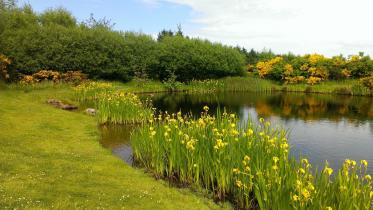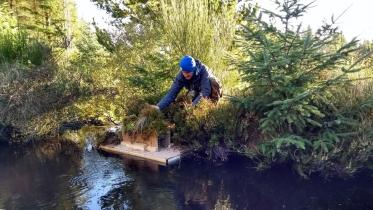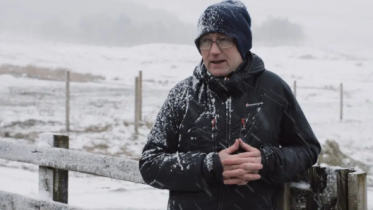SAC members
The Committee’s external members bring to NatureScot a mix of expertise in a wide range of disciplines.
The Scientific Advisory Committee (SAC) has up to seven members, plus one of our Board members as Chair.
All of the SAC members come from outside NatureScot. They bring to the table a mix of expertise in a wide range of disciplines.
Professor Peter Higgins
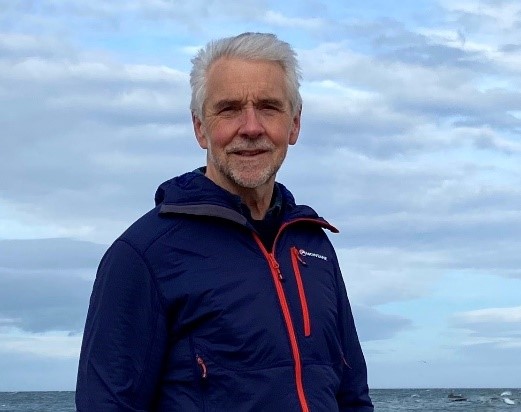
Pete is Professor of Outdoor, Environmental and Sustainability Education at the University of Edinburgh, and Director of the United Nations University Recognised Centre for Education for Sustainable Development (Scotland).
His background is in environmental sciences, freshwater and fisheries biology. Much of his career has been spent working in and for the environment promoting its educational, environmental, social and economic value through teaching, research, and policy development.
He Chaired the Scottish Government Ministerial Advisory/Implementation Groups on Learning for Sustainability, and was a Member of the National Parks Act Review Group. He is a Fellow of the Royal Society of Edinburgh, Principal Fellow of the Higher Education Academy, an expert advisor to the UK Commission for UNESCO and several international nature and sustainability education networks, and is Chair of the Board of Trustees of the Field Studies Council.
Pete will act as Chair of the Scientific Advisory Committee until 31 March 2025.
Kathy Dale
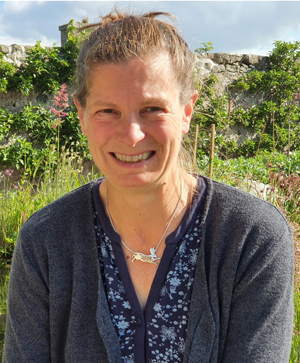
Kathy Dale has a BSc (Hons) degree in Ecology from Loughborough University and an MSc in The Biology of Water Resource Management from Napier University, Edinburgh. She is a Chartered Ecologist and has thirty-five years’ professional consultancy experience. She was a Principal Consultant at EnviroCentre Limited for 14 years before retiring in November 2020.
Kathy is authoritative in the fields of Ecological Impact Assessment (EcIA), Habitats Regulations Appraisal (HRA) and industry standard ecological surveying, research and good practice. She is an accomplished aquatic ecologist with wide-ranging knowledge of freshwater and coastal environments, including habitat and botanical surveying, site assessment and management, and devising survey and monitoring strategies. She specialises in aquatic macrophytes and has a specific interest in river restoration.
Kathy was a Founder Member of the Chartered Institute of Ecology and Environmental Management (CIEEM) and was instrumental in setting up the first Geographic Section, in Scotland. She is driven by the strong need to recognise ecology as a profession, to improve the standards of ecological research and reporting, and for ecologists to have professional representation. For a number of years, until November 2020, she was a member of the University of Aberdeen School of Biological Sciences (SBS) Programme Advisory Board (PAB), advising on the skills graduates require for a career in consultancy.
Professor Dan Haydon
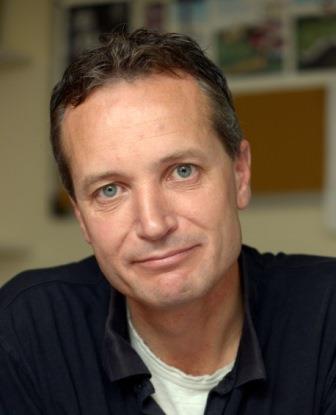
A population ecologist, Dan is Professor of Population Ecology and Epidemiology at the University of Glasgow. Dan undertook his PhD at the University of Texas at Austin, and post-docs at the Universities of Oxford, British Columbia, Edinburgh, and Guelph, before moving to Glasgow in 2004.
His research interests span:
- theoretical and quantitative approaches to ecological and evolutionary problems, including population and ecosystem dynamics
- conservation
- evolutionary ecology
- infectious disease ecology and epidemiology
Dan is the founding Director of the Boyd Orr Centre for Population and Ecosystem Health, and currently is Director of the Institute of Biodiversity, Animal Health and Comparative Medicine within the College of Medicinal, Veterinary and Life Sciences at the University of Glasgow.
Dan is a Fellow of the Royal Society of Edinburgh.
Professor Neil Metcalfe
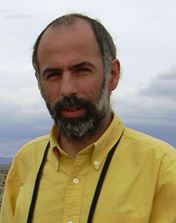
A behavioural ecologist, Neil is Professor of Behavioural Ecology at the University of Glasgow. Neil is interested in the links between the ecology, behaviour and physiology of animals, and mainly studies fish and birds.
His work on salmon and trout has involved long-running collaborations with biologists at the Pitlochry Freshwater Fisheries Laboratory and the Cromarty Firth Fisheries Board.
Over many years, Neil has conducted breeding bird surveys for the British Trust for Ornithology, and bat roosts’ counts for the Bat Conservation Trust.
Neil is a Fellow of the Royal Society of Edinburgh, a Member of the Academia Europaea, a Member of the Ethics Committee for the Association for the Study of Animal Behaviour, and has recently joined the Board of the Clyde River Foundation.
Dr Ruth Mitchell
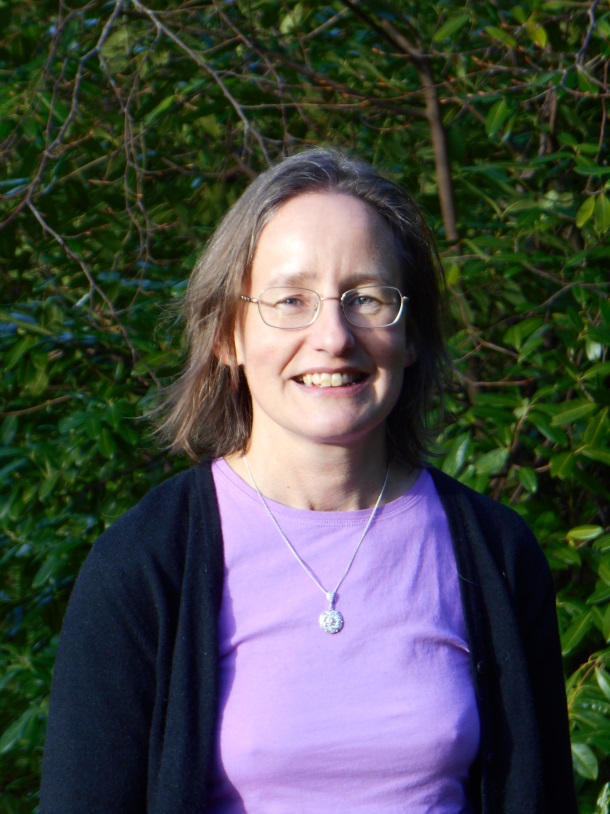
As a Plant and soil ecologist, Ruth has researched Scotland’s Atlantic oakwoods and now studies the wider impact of tree diseases such as ash dieback.
Ruth specialises in above- and below-ground systems in temperate upland and alpine environments.
Most recently, Ruth examined the ecological effects of ash dieback. With her team she has gone on to study the impacts of other tree diseases such as acute oak decline and box blight.
Ruth previously worked at the NERC Centre for Ecology and Hydrology, studying Atlantic oakwoods. She contributed to the survey work for the UK-wide Countryside Survey in 1999 and 2007. While working for the RSPB, Ruth provided ecological advice in relation to reserves and helped develop management plans.
Ruth is Chair of the British Ecological Society Scottish Policy Group.
Professor Jane Reid
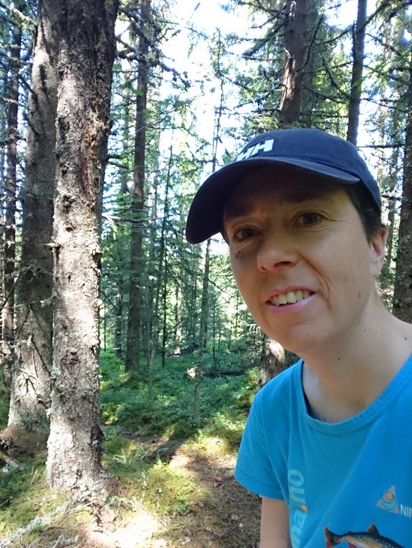
Jane is a Professor of Population and Evolutionary Ecology at the University of Aberdeen, and currently also an International Chair Professor at the Norwegian University of Science and Technology.
Jane’s research interests lie in understanding population dynamic and evolutionary responses to environmental variation and change. She is particularly interested in understanding the impacts of inbreeding in small populations, and in understanding the consequences of movements (dispersal and seasonal migration) for population and evolutionary dynamics. She focuses on long-term field studies of wild bird populations, primarily including red-billed choughs, European shags and song sparrows.
Jane is a Fellow of the Royal Society of Edinburgh and the Royal Norwegian Society of Sciences and Letters. She was previously awarded the Zoological Society of London Scientific Medal, and the Marsh Award for Ornithology. She is an experienced field ornithologist, and is a long-standing director of Fair Isle Bird Observatory Trust.
Professor Marian Scott
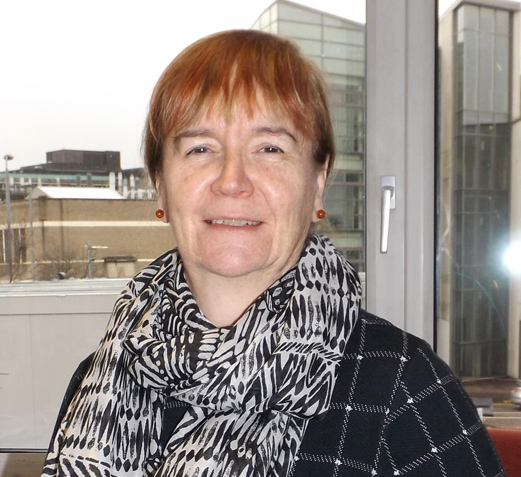
Marian is Professor of Environmental Statistics at the University of Glasgow. She gained her PhD at the University of Glasgow and has spent periods of study at the IAEA Marine Radioactivity Laboratory in Monaco and at CSIRO in Melbourne.
Her research interests span:
- Environmental informatics (including data fusion from in situ sensors, drones and satellites to provide improved mapping of spatio-temporal modelling; and applications to water quality and quantity, and air quality and health)
- Animal welfare and quality of life
- Radiocarbon dating and the carbon cycle
Marian is currently a member of the Scottish Science Advisory Council, JNCC Committee, and the EU SCHEER committee.
Marian is a Fellow of the Royal Society of Edinburgh, the International Statistical Institute and a chartered statistician of the Royal Statistical Society. She was awarded an OBE in 2009 for services to science.
